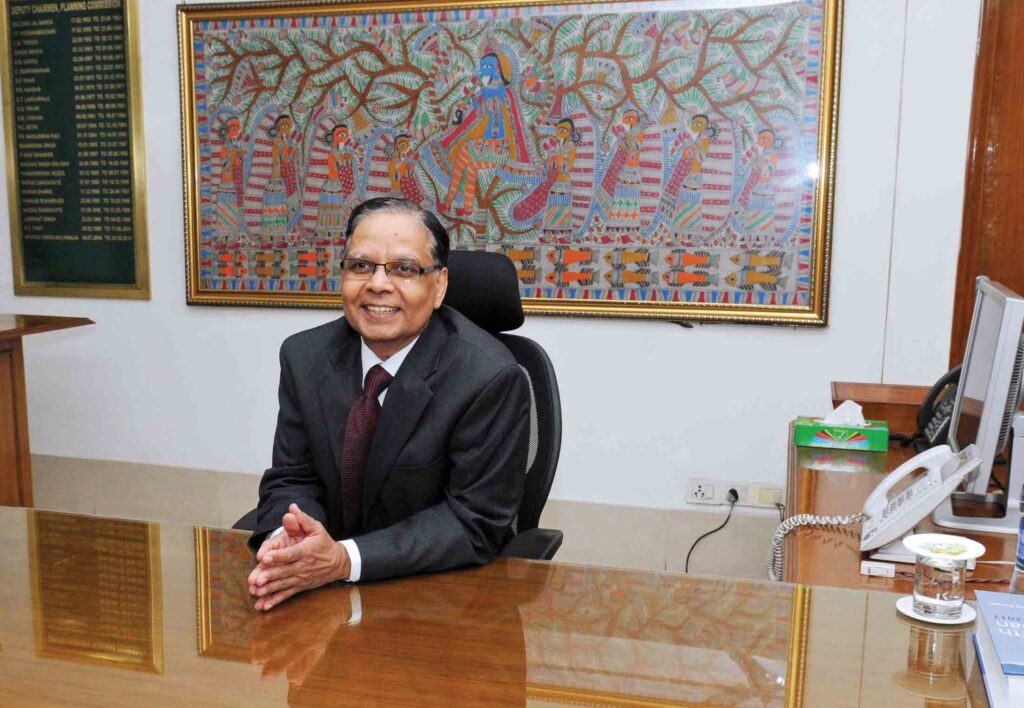IN his first flush of governance reforms, the Prime Minister announced the abolition of the Planning Commission and its replacement with the National Institution for Transforming India. Almost everyone, except the Nehruvian ideologues, welcomed the decision as it was generally agreed that the Planning Commission had outlived its purpose and utility and that something had to be done about it.
I wish the Niti Aayog succeeds in fulfilling the promise with which it has been created. And I hope that in its first meeting on February 6, 2015, it spells out its mission as well as the mechanism to do it.
There are similarities between the Aayog and its predecessor. The new body, like the Planning Commission, has been created by a government resolution. It does not have any constitutional or statutory stature. The Prime Minister continues to head Niti Aayog too. With a Deputy Chairman and some full-time members (though less in number), its structure remains somewhat similar to that of the Planning Commission. The main differences are in the functions. While the Planning Commission enjoyed the powers to allocate funds to Central ministries and State governments, Niti Aayog is proposed to be a think-tank or an advisory body.
The easier part has been accomplished with the creation of the Aayog. The more difficult part is yet to be done — elaborating as to what the new institution is to perform and how it should proceed to transform India. It has to identify the constraints on socio-economic development of the country in different sectors, for example, poverty, disparity, environment, energy, water, education, agriculture and so on. It should refrain from micro-managing the programmes and projects. Its organisational relevance would be assessed on the advice it provides to the Central and State governments. Besides, in the absence of a constitutional or statutory status, it would be required to work in tandem with other constitutional institutions like the Finance Commission and Inter States Council.

The Niti Aayog can prove its credibility only if such details are tackled quickly. The doubts raised by many commentators, including Bibek Debroy before he was appointed a full-time member of the Aayog, have to be cleared by the government within months, if not weeks.
Arvind Panagariya: Man for the mission
BORN on September 30, 1952, Panagariya is an Indian-American economist. According to his bio-data, posted on the website of Columbia University, he is a professor of economics, the Jagdish Bhagwati Professor of Indian Political Economy at Columbia University and a non-resident Senior Fellow at the Brookings Institution. In the past, he has been the Chief Economist of the Asian Development Bank and a professor of economics and co-director, Center for International Economics, University of Maryland, at College Park. He has also worked for the World Bank, IMF, WTO, and UNCTAD in various capacities. He holds a PhD degree in economics from Princeton University.
He has written and edited 10 books. His latest book, India: The Emerging Giant, was published in March 2008 by Oxford University Press, New York, and has been described as the ‘definitive book on the Indian economy’ by Fareed Zakaria and ‘a tour de horizon and a tour de force’ by Jagdish Bhagwati. His previous books include The Economics of Preferential Trade Agreements (with Jagdish Bhagwati) and Lectures on International Trade (with J Bhagwati and TN Srinivasan).
Dr Arvind Panagariya, the Vice Chairman of the newly constituted Niti Aayog, despite his long years abroad as a professor in Princeton University and in other distinguished positions, has his roots firmly in the soil of India. He belongs to a family of scholars in Jaipur. His father, BL Panagariya, was an officer of the Rajasthan government whose opinion was sought by authorities and scholars even after his retirement. BL Panagariya was deemed an expert on Centre-State relations and on economic developments. Prominent Chief Ministers of Rajasthan, like Mohal Lal Sukhadia, Harideo Joshi and Bhairon SIngh Shekhawat, trusted his opinion. Hopefully, Arvind Panagariya will prove to be a true heir and upholder of the tradition of his distinguished father and uphold the spirit of federal cooperativeness.
— gfiles bureau
In his blog in The Economic Times in the first week of January, Debroy asked several questions about the lack of clarity in the mandate and scope of the Aayog. He asked why the Aayog was ‘set up executively rather than through a specific piece of legislation’ since a ‘cabinet resolution does not inspire a great deal of confidence’. Also, he said that multiplicity of objectives makes the proposed structure of Niti Aayog unnecessarily cumbersome and complicated.
Further, since the image of Arvind Panagariya, a close associate of reputed economist Jagdish Bhagwati, is of a staunch votary of the market-centred economic system, a doubt is raised in some quarters whether the time is ripe for thrusting free market principles on the country, or whether attention still needs to be given to issues of alleviation of poverty, gender discrimination, social justice and so on.
A good start would be by providing clarity on the fate of five-year and annual plans and just how the government would devolve funds to the States. Any further delay in answering these questions could cause avoidable frustration in the States.
Needless to say, it will largely depend on the key functionaries. If they are exclusively academics and economists of the World Bank/IMF genre, it is doubtful that the attributes of India’s transformation would reach those areas and people who need transformation. In my view, it is imperative that persons with in-depth knowledge of and association with every region of the country and those who are sensitive to the aspirations of the people man the Aayog.
If the new dispensation results in a relatively better form of planning for greater growth and inclusiveness, the doubts would be automatically resolved. Otherwise, the danger is that Niti Aayog may turn out to be a Planning Commission with another name.
The writer was the Cabinet Secretary and the first Governor of Jharkhand. He can be reached at pkumar1511@hotmail.com
Prabhat Kumar is an Indian Administrative Service officer of the 1963 batch, he served as the Cabinet Secretary of Government of India between 1998 and 2000. Upon creation of the State of Jharkhand in November 2000, he served as the first Governor.












































